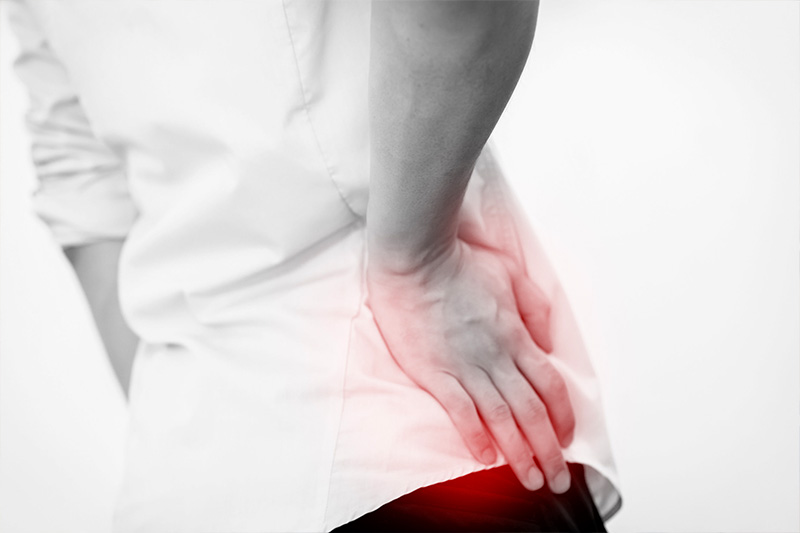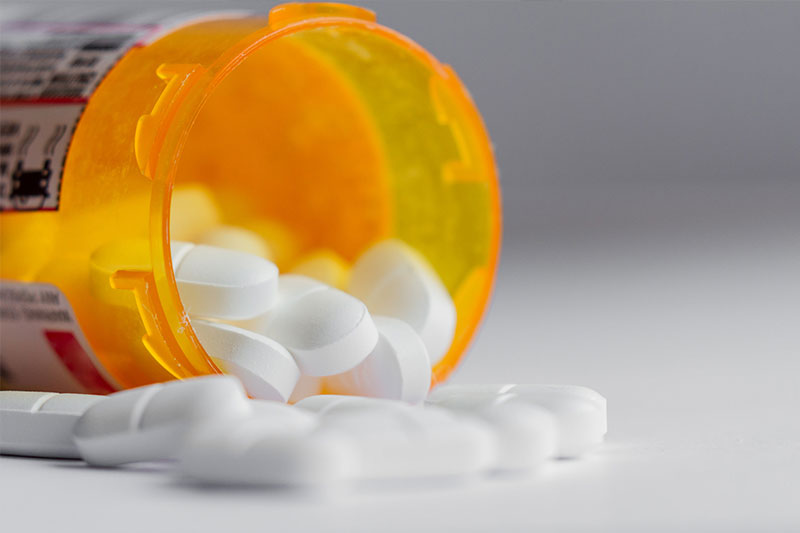Anxiety disorders affect more than 40 million adults in the US every year. The condition causes intense bouts of worry as well as an inability to focus. Due to these symptoms, it’s thought that anxiety attacks raise blood pressure – but this isn’t exactly true. What anxiety does do is cause spikes in your blood pressure. If frequent enough, these spikes can damage your blood vessels, heart and kidneys.
When you begin to feel anxious because of a stressful situation, your body triggers your fight or flight response, increasing your adrenaline and cortisol levels. It’s this response that drives the increase in blood pressure.
So, in order to help reduce anxious feelings and address any physical symptoms, we’ve answered the question 'can anxiety cause high blood pressure' here. We’ve also provided tips for improving heart health.
What is high blood pressure?

Blood pressure is measured by the force at which your heart pumps blood and the resistance blood faces when traveling through blood vessels. High blood pressure, or hypertension, therefore puts extra strain on your blood vessels, heart and other organs.
Persistent high blood pressure increases your risk of a number of potentially life-threatening health conditions, such as:
- Cardiovascular disease (heart disease)
- Heart attacks
- Strokes
- Heart failure
- Peripheral arterial disease
- Aortic aneurysms
- Kidney disease
High blood pressure doesn’t always have symptoms, however, so the only sure-fire way of knowing you don't have the condition is to have your blood pressure checked. For healthy adults aged over 40, this should be done once every five years.
If you’re at an increased risk of high or low blood pressure (if you have a family history of chronic high blood pressure, for example), you should get checked once a year.
What causes high blood pressure?
It’s very hard to know for certain what causes primary hypertension, but there are a number of unhealthy lifestyle behaviors that will increase blood pressure risk. These include:
- Poor diet
- Not getting enough sleep
- High caffeine intake
- High alcohol intake
- Not getting enough exercise
- Smoking
- Consuming too much salt and not enough fruit and vegetables
There are other risks you could be exposed to relating to underlying health conditions. For example:
- Kidney disease
- Diabetes
- Obstructive sleep apnea
- Underactive thyroid
- Lupus
Finally, you can increase your risk of having elevated blood pressure by taking certain medications. These include:
- The contraceptive pill
- Steroids
- Non-steroidal anti-inflammatory drugs (NSAIDs)
- Certain pharmacy cough and cold remedies
- Certain herbal remedies
- Certain recreational drugs, such as cocaine and amphetamines
Provided you limit your exposure to the most significant risk factors, you're less likely to develop hypertension in your later years.
How can I treat high blood pressure?
If your symptoms aren't too severe, you'll be advised to make lifestyle decisions. When we say not too severe, we mean that while your higher blood pressure readings are consistently above 140/90mmHg (or 135/85mmHg at home), your risk of other problems is low.
These lifestyle changes typically include improving your diet, exercising more and quitting smoking.

However, if you suffer more severe symptoms, your blood pressure is consistently above 140/90mmHg (or 135/85mmHg at home) and your risk of other problems is high, you'll be offered medicine to lower your blood pressure, in addition to lifestyle changes.
There are several types of medication available to you, but generally:
- If you're under 55 years of age, you'll be offered an angiotensin-converting enzyme (ACE) inhibitor or an angiotensin-2 receptor blocker (ARB).
- If you're aged 55 or older, or you're any age and of African or Caribbean origin, you'll be offered a calcium channel blocker.
What is an anxiety disorder?
Generalized anxiety disorder is more than your infrequent attack. It's where you suffer severe or recurrent symptoms of anxiety in your everyday life. Often this means you’re unable to focus at work, in school or even at home.
This lack of focus can prevent you from sleeping and cause heart palpitations. And the more extreme and frequent these palpitations are, the more likely you are to damage your blood vessels and heart.
Again, you won't necessarily develop hypertension by being anxious, but you may aggravate an existing condition. For this reason, it's worth paying attention to your mental health and limiting how often your anxiety occurs.
How can you treat anxiety symptoms?
Intense anxiety, like high blood pressure, can be addressed with both lifestyle changes and medication.
In terms of lifestyle changes, start by learning deep breathing techniques. When we're anxious, we breathe much quicker as a result of increased levels of adrenaline. It's perfectly normal and just the brain kicking the body into survival mode. The solution is to focus on your breathing and manually slow it down. To do this, sit up or lie back on a flat surface. Then, place one hand on your upper chest and feel your diaphragm as you breathe slowly through your nose and out your mouth.
Now you can control your breathing, find distractions to take your attention away from situations that trigger feelings of anxiety. For example, exercise keeps your brain engaged with moving your body. It also activates frontal regions of the brain that help control the amygdala, our reacting system to real or imagined threats. Just by taking light exercise regularly, you can bolster your resilience against unwanted emotions.
However, chronic anxiety isn't always alleviated by exercise and deep breathing techniques. Some anxiety disorders require medication.
What are considered the top anxiety medications?
When it comes to mental health, it isn't admitting defeat to trial medication. Doctors diagnose and prescribe treatments because it can treat symptoms of anxiety and high blood pressure by extension.
The medications prescribed include:
- Effexor (venlafaxine hydrochloride)
- Prozac (fluoxetine hydrochloride)
- Zoloft (sertraline)
- Lexapro (escitalopram)
You may find that one doesn't address your specific needs. In which case, speak to your doctor and request an alternative medicine.
How Medix can help
While mental health conditions are as important as physical ailments, individuals often ignore them. Yet, as we’ve seen, scientists have identified an association between anxiety and hypertension that proves the health of the mind has a direct impact on the health of the body.
One reason so many individuals don't seek out treatment for anxiety is the cost of drugs paired with the reluctance to ask for help. For this reason, our medications are affordable and delivered discreetly.
Find out more by calling 1-866-500-6633 (toll-free phone number) or +44 1438 500111 (international phone number). Alternatively, you can request a callback.






